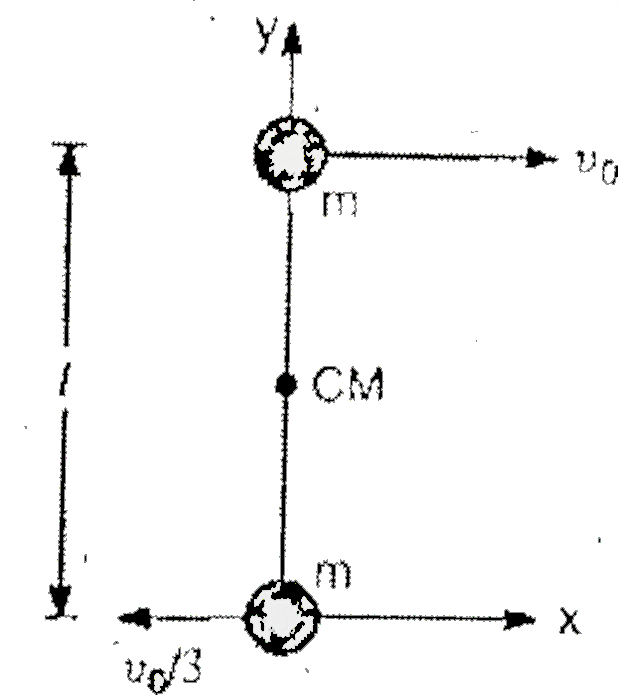A nucleus is at rest in the laboratory frame of reference Show that if it distintegrates into two smaller nuclei the products must be emitted in opposite directions .
Step by step video & image solution for A nucleus is at rest in the laboratory frame of reference Show that if it distintegrates into two smaller nuclei the products must be emitted in opposite directions . by Physics experts to help you in doubts & scoring excellent marks in Class 11 exams.
Updated on:21/07/2023Topper's Solved these Questions
- LAWS OF MOTION : FRICTIONBOOK - SL ARORACHAPTER - LAWS OF MOTION : FRICTIONEXERCISE - Problems
17 Videos
- LAWS OF MOTION : FRICTIONBOOK - SL ARORACHAPTER - LAWS OF MOTION : FRICTIONEXERCISE - Self Practice
95 Videos
- Laws of MotionBOOK - SL ARORACHAPTER - Laws of MotionEXERCISE - Exercise
627 Videos
- Mathematical toolsBOOK - SL ARORACHAPTER - Mathematical toolsEXERCISE - Exercise
20 Videos
Similar Questions
Find the proper length of a rod if in the laboratory frame of reference its velocity is v=c/2, the length l=1.00m, and the angle between the rod and its direction of motion is θ=45∘.
View SolutionTwo relativistic particles move at right angles to each other in a laboratory frame of reference, one with the velocity v1 and the other with the velocity v2. Find their relative velocity.
View Solution
Knowledge Check
Assertion: Stationary waves are so called because particles are at rest in stationary waves.
Reason: They are formed by the superposition of two identical waves travelling in opposite directions.AIf both Assertion and Reason are true and the Reason is correct explanation of the Assertion.BIf both Assertion and Reason are true but Reason is not the correct explanation of Assertion.CIf Assertion is true, but the Reason is false.DIf Assertion is false but the Reason is true.A nucleus A, With a finite de-broglie wavelength λA, undergoes spontaneous fission into two nuclei B and C of equal mass. B flies in the same direction as that of A, While C flies in the opposite direction with a velocity equal to half of that of B . The de-Broglie wavelength λB and λB and C are respectively:
AλA,2λAB2λA,λACλA,λA2DλA2,λA
Two rods having the same proper length l0 move lengthwise toward each other parallel to a common axis with the same velocity v relative to the laboratory frame of reference. What is the length of each rod in the reference frame fixed to the other rod?
View SolutionTwo particles moving in a laboratory frame of reference along the same straight line with the same velocity v=(3/4)c strike against a stationary target with the time interval Δt=50ns. Find the proper distance between the particles prior to their hitting the target.
View SolutionA diatomic molecule two identicla atoms of mass m bound together a distance l apart is confined in a lab reference frame. At a certain time one of the two atoms is observed to have speed v0 and the other, moving in the opposite direction, speed v0/3.

View SolutionA particular type of nucleus whose decay constant is λ is produced at a steady rate of p nuclei per second. Show that the number of nuclei N present t second after the production starts is N=Pλ[1−e~λt].
View SolutionPseudo force is an imaginary force which is recognised only by a non-inertial observer to explain the physical situation according to newton’s laws. Magnitude of pseudo force Fp is equal to the product of the mass m of the object and the acceleration a of the frame of reference. The direction of the force is opposite to the direction of acceleration,Fp=−ma
spring weighing machine inside a stationary lift reads 50 kg when a man stand on it. What would happen to the scale reading if the lift is moving upward with (i) constant velocity (ii) constant acceleratioin
View SolutionTwo satellites A and B of equal mass move in the equatorial plane of the earth, close to earth's surface. Satellite A moves in the same direction as the of the rotation of the earth while satellite B moves in the opposite direction. Calclate the ratio of the kinetic energy of B of that of A in the reference frame fixed to the earth (g=9.8ms−2 and radius of the earth =6.37×106km)
View Solution
